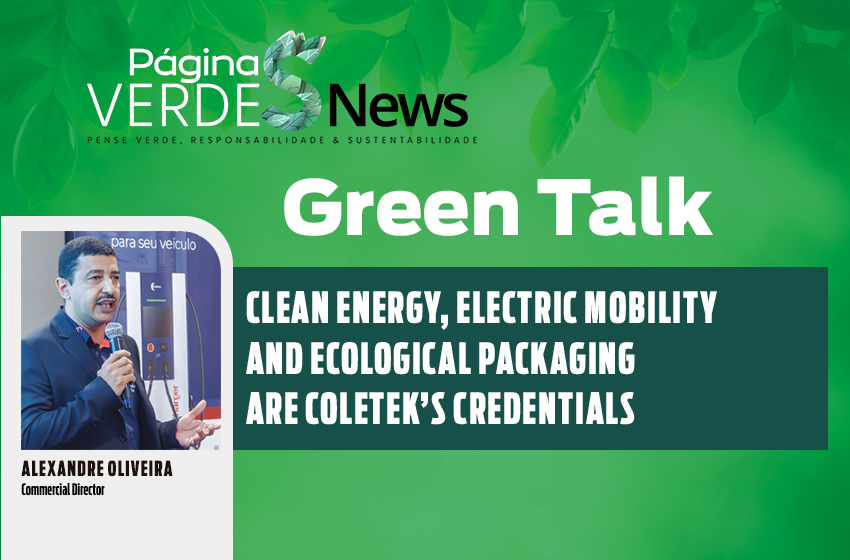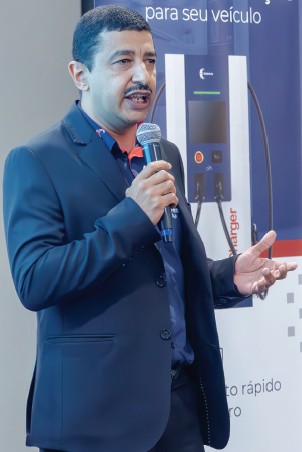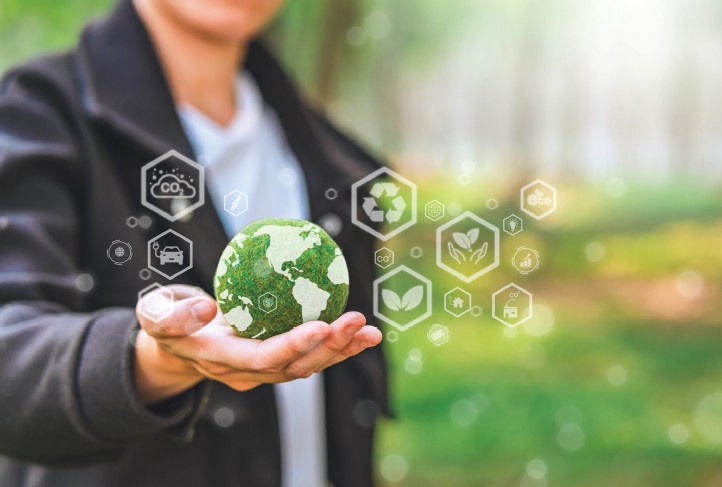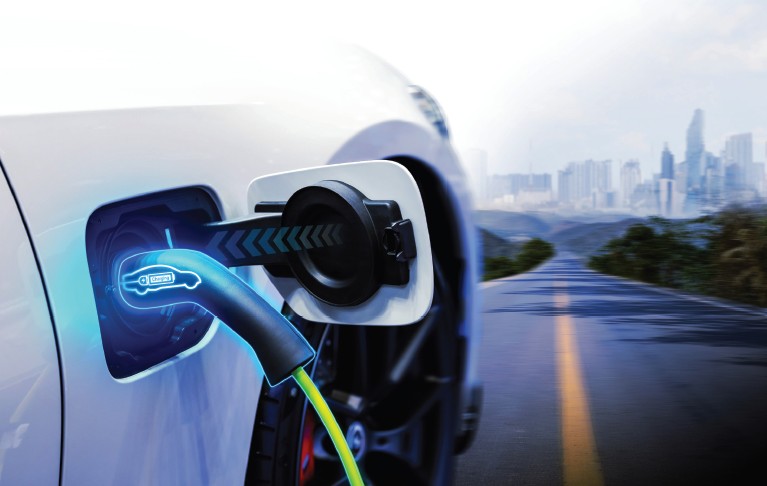
Green Pages – NEWS
Clean energy, electric mobility and ecological packaging are Coletek’s credentials
by Leda Cavalcanti

diretor-comercial
Alexandre Oliveira, commercial director at Coletek, holds an MBA in business management from the University of São Paulo (USP) and has nearly 30 years of experience in technology-related fields. A native of São Paulo, he joined Coletek in 2012, where he held leadership positions such as commercial, marketing and product manager. This year, he assumed the position of commercial director. He coordinated important product line projects, leading portfolio management, market trend analysis, strategic development and team training. He is a specialist in strategic planning, CRM, negotiation techniques and career mentoring.
Founded in 2003, in the city of Varginha, Minas Gerais, where it occupies an area of approximately 110,000 m², Coletek Indústria e Comércio adopts environmental, social and governance initiatives as part of its institutional commitment to sustainable development. These values are reinforced through concrete practices and internationally recognized certifications.
Coletek Energia, a brand of the company, focuses on technological solutions in electric mobility. Colepack, its packaging unit, develops molded pulp solutions made with recycled paper fibers, which are fully recyclable, biodegradable and compostable. In this way, it promotes the circular economy and reduces logistics costs.
ESG principles are present in industrial operations, in investments in sustainable infrastructure, such as solar energy and high-efficiency machines — for example, the SMT system — and in the social development of the Varginha community. The company supports local sports projects and actions in favor of children and adolescents in vulnerable situations.

What are Coletek’s main commitments regarding the ESG agenda?
ALEXANDRE OLIVEIRA – Coletek is committed to innovation with responsibility, seeking to combine technology with sustainability and social well-being. The company maintains practices aligned with international quality and environmental standards, as demonstrated by its ISO 9001 and ISO 14001 certifications. Among the commitments are the expansion of clean energy use, such as the recent doubling of solar generation capacity at its Minas Gerais factory, and the development of sustainable solutions, such as the 100% ecological packaging produced by Colepack.
What drives the company to invest in electric mobility?
AO – Innovation and sustainability go hand in hand. We bet on electric mobility as one of the transformation drivers. We launched a complete line of chargers for electrified vehicles, with portable models (EV0330PKW) and high-power stations (EV-30KW and EV-240KW). A milestone in this movement was the installation of the first fast charging station in Varginha, accelerating the transition to sustainable mobility in Brazil.
“Brazil has the potential to become a global reference in low carbon, combining its clean energy matrix with innovation in transport and logistics.”
What environmental management practices are adopted?
AO – Our environmental management includes solar energy generation, with the Minas Gerais unit reaching 200,000 kW/month in 2025, which covers 70% of the company’s demand and avoids around 48 tons of CO₂ per year, in addition to the role of Colepack, a national reference in the sector, which recycles over 100 tons of materials per month to produce ecological packaging. These are 100% recyclable, biodegradable and compostable. Its production is 1.8 million pieces per month. The smart design reduces transportation and storage volume by up to 70%, generating logistical and environmental gains.
Is Coletek Energia a separate company?
AO – It is a brand of the same business group. Coletek Energia has become a leading player in the expansion of electric mobility with the launch of smart chargers that simplify the user experience, such as the autocharge function for automatic vehicle identification. These initiatives reinforce our alignment with the Mover Program and the Fuel of the Future initiative, promoting the decarbonization of the Brazilian fleet.

Can we say that the country is moving towards a low-carbon economy?
AO – Yes. And initiatives like Coletek Energia and Colepack drive this transition. Brazil has the potential to become a global reference in low carbon, combining its clean energy matrix with innovation in transport and logistics.
Does Brazil make good use of its natural resources?
AO – In part, yes. The Brazilian energy matrix, based on renewable sources, is a great differentiator. Coletek Energia reinforces this use by encouraging the electrification of mobility, and Colepack exemplifies how it is possible to reuse resources — for example, recycled paper — to create products with high environmental value. Advancing infrastructure, especially for electric vehicles on highways, is the next necessary step.
How does the company act to promote social inclusion?
AO – Coletek is one of the main employers in the city of Varginha and invests heavily in its employees, offering good working conditions, workplace exercise, psychological support and a modern cafeteria. It also maintains social initiatives such as supporting the Varginha volleyball team since 2010 and involvement, in partnership with the municipal government, in support of children and adolescents in vulnerable situations.
“Our environmental management includes solar energy generation, with the Minas Gerais unit reaching 200,000 kW/month in 2025, which covers 70% of the company’s demand and avoids around 48 tons of CO₂ per year.”
How does the company integrate suppliers and partners into ESG principles?
AO – Coletek works with internationally recognized brands, such as Logitech, Philips Water, Lecoo and eMachines, and promotes an integrated production chain with a focus on quality and environmental responsibility. The adoption of certifications such as ISO 14001 also reflects this commitment, reinforcing the environmental standards required from partners.
What are the company’s biggest challenges regarding sustainability?
AO – Maintaining the balance between productivity and sustainability, expanding sustainable practices throughout the value chain and ensuring that technological innovation goes hand in hand with environmental and social responsibility are some of the main challenges. The continuous expansion of projects such as Colepack and solar generation shows the company’s effort to consistently overcome these barriers.
Source: Eletrolar News – Ed #167





